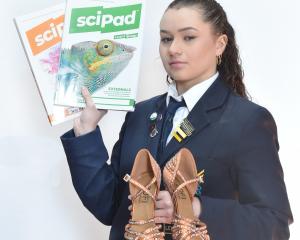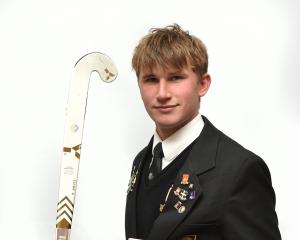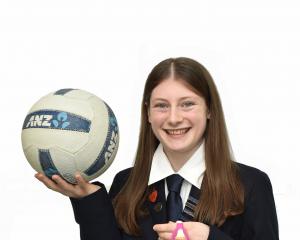
‘‘He puts everyone else before himself,’’ the New Zealand under-17 futsal player told the newspaper.
Alistair McRobie, good with his hands, was always fixing people’s lawnmowers and cars. He was also one of Mr King’s biggest supporters. To raise money to send him on a futsal trip to China, he went hunting and organised a wild foods festival. Later, he told anyone who would listen that his stepson worked for a company that helped with the detection of cancer.
In March this year, Mr McRobie passed away after a year-long battle with lung cancer and Mr King’s work, always important, took on extra significance.
‘‘I'm proud to be contributing to technology that can prevent families from going through that ordeal,’’ he says, adding that Mr McRobie remains his role model.
‘‘I think most people in the company will have had someone in their lives affected [by cancer] but it is a little bit different when it’s someone very, very close to home and someone that you’ve admired for so long.’’
A former King’s High School pupil, Mr King is a product designer for Volpara Health in Wellington. The company creates AI-powered software, with the aim of helping clinicians detect cancers earlier when they are most treatable.
Helping manage lung cancer patients from scheduling to diagnosis is one part of this but Mr King works on breast cancer tools that help assess a patient’s risk of cancer, give mammographers real-time feedback on the quality of their images, and provide training to optimise breast positioning.
Algorithms also measure breast density, or the proportion of dense, glandular tissue and fibrous connective tissue compared to fatty tissue. This is important because both cancer cells and fibroglandular tissue appear white on mammograms, making cancers in dense breasts harder to spot.
A key part of his job is interviewing mammographers and radiologists to understand the problems they face and that means making early-morning phone calls — the software is used in a ‘‘handful’’ of New Zealand clinics but the largest customer base is in the United States.
That is because there is more recognition in the US that, aside from the masking effect, breast density has itself been found to be a risk factor for breast cancer, he says. In many states, it is mandatory for density to be reported back to patients and it is common for those with dense tissue to be offered supplementary screening such as ultrasounds.
Since gaining an honours degree in visual communication design, Mr King has enjoyed creating work for a variety of organisations, from Trade Me Property to Kiwibank. But his current employer is a particularly easy one to support because it has a ‘‘pretty powerful mission’’, he says.
‘‘Getting out of bed every day and saying that you’re going to go save the world from cancer is pretty special.’’












